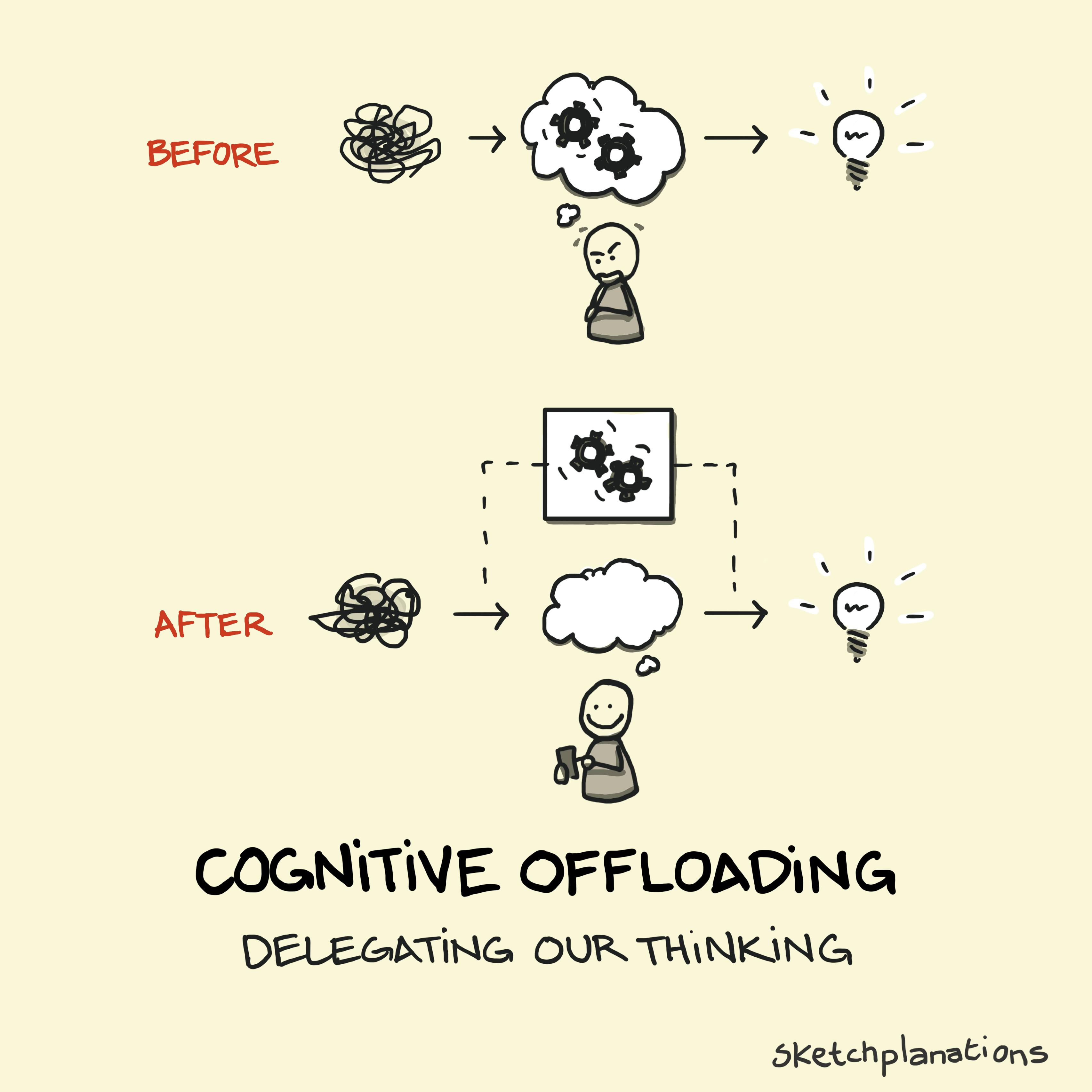Cognitive Offloading: Delegating Our Thinking

👇 Get new sketches each week
I've often found myself wondering how thinking is hard work. If someone gives me a long list of arithmetic to do, it's tempting not to do it. If I have a tricky problem, it's easy to procrastinate and do "easier" stuff instead. Deep reflective thinking, and even shallow thinking that requires holding information in memory, seems like work—ever been tempted to delegate the adding up of scores for a board game?
I've never quite figured out where the hard work is in thinking—after all, it's not physically tiring like heading out for a 5-mile run—but it's definitely there. Hence, perhaps the tempting and irresistible rise of cognitive offloading: delegating our thinking tasks so we don't have to do them.
We've been cognitive offloading for a long time. When I carried the 2 in a long sum, I was offloading a task for my memory. And I grew up remembering phone numbers rather than dialling a person, and I don't feel the change has made things worse.
Hiring employees can be a form of delegating thinking. Using a calculator rather than a slide rule or working something out on paper leaves more room for deeper thinking. Other common examples of cognitive offloading include using notes apps, reminders, calculators, navigation systems, and now AI chatbots.
But what about when we can offload the deeper thinking, too, as we can now with AI chatbots? That may leave room for more interesting tasks. Or maybe, like not training my muscles and endurance by going out for a 5-mile run, it reduces my ability for deep thinking.
Nicholas Carr discussed a shift to shallow thinking from the pervasive use of the internet in his 2011 book The Shallows . We became proficient at skimming and scanning for answers rather than interrogating and questioning.
There's some evidence that more cognitive offloading reduces our critical thinking abilities , and an MIT study showed that "the more help students had from AI, the less their brains worked. People using ChatGPT struggled to remember or quote from the essays they had just written and reported feeling little ownership of their work. By comparison, the essays written by the “brain-only” writers were more original and their brains more active."
If a developer uses an AI chatbot in an interview and gives a strong answer, will that make them worse at the job when they would use an AI chatbot on the job anyway?
I use ChatGPT as a thinking partner for posts these days. I think that it helps make them better, but who knows what it's really doing to me =) Are Sketchplanations just staying surface-level or engaging some thinking? It would be nice to think that it grinds a few gears. Here's hoping!
Related Ideas to Cognitive Offloading
- The Automation Paradox
- Don't let your thinking be limited by your tools
- Build your personal panel of advisors
- The X–Y Problem
- Fauxtomation
- Cognitive overhead
- Solvitur Ambulando

